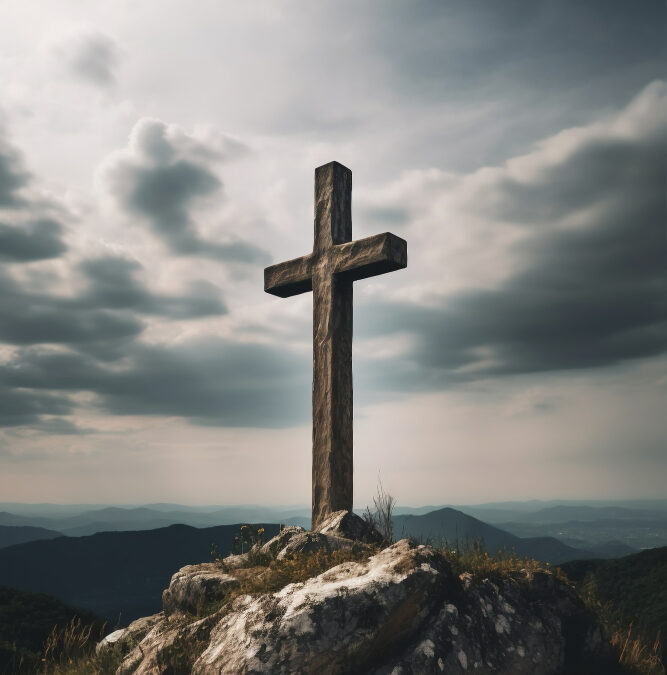
Barbaric Norms: Hamas, Israel, and Just War
The despicable and horrendous attacks by Hamas against civilians last week, including beheading children and kidnapping the elderly, seems a throwback to some distant, barbaric past of human history. We may have thought the world had long ago outgrown such barbarity, but it hasn’t. In fact, as shocking as it is, the kinds of atrocities carried out by the Hamas terrorists are the norms of warfare, at least throughout most of human history. Modern notions of just war, proportionality, and distinguishing between civilians and combatants are exceptions to the kinds of warfare conducted by the Assyrians and Babylonians, ancient Greece, the Vikings, the Mongols, and the Aztecs. Massacre sites...
Live by Ideology, Die by Ideology
Two significant academic scandals from the past year underscore why the new book Critical Dilemma, written by Drs. Neil Shenvi and Pat Sawyer, is so timely and important. In my view, this book offers the definitive critique of critical theory from a Christian worldview. You can receive a copy for a gift to the Colson Center this month. (Just go to colsoncenter.org/October). Eric Stewart, a former professor in the highly rated criminology department at Florida State University, is the principal author of a paper that concluded that, as Black and Latino populations increased, so did the public’s demand for more discriminatory sentencing. After the paper was published, his co-author Justin...

Advent through the Ages: The O Antiphons
As Christmas approaches, I always find myself connecting to the past, both my family’s history and beyond that to the more distant history of the church through the ages. Perhaps I do that because the theme of Advent (the season of the church year that begins four Sundays before Christmas) is waiting for God to fulfill his promise to save his people. We think back to the centuries the people of Israel waited for the coming of the Messiah, and we look ahead to Jesus’ return and remember the centuries the church has longed for his coming. And pondering those long centuries of waiting gives me a feeling of connection with the past and makes me want to join in with the history and practices of...
A Visit from St. Nicholas
An update on the poem "A Visit from St. Nicholas" by Elizabeth Sunshine Koroma. This is based on the legend that St. Nicholas slapped Arius for being a heretic at the Council of Nicaea in AD 325.
Does Christmas Have Pagan Roots?
Every year at Christmas time we hear arguments that our Christmas celebrations are little more than warmed over paganism. We hear that the date was selected to compete with pagan holidays, or worse, to absorb pagan holidays into the church, and that our Christmas practices originate in paganism. What are we to make of these arguments? Are we buying into paganism in our Christmas celebrations? The answer is no. The arguments for the supposed pagan origins of Christmas are overblown, and even where there are some tinges of pagan roots in our practices, that doesn’t mean we are practicing paganism. We’ll look at two specific examples in this article, the date of Christmas, and Christmas trees...
A Thanksgiving Precedent: What Really Happened in Plymouth?
Like everything else it seems, American history is being weaponized in our political and cultural wars, with both sides often playing fast and loose with the facts and adopting interpretations intended to score political points rather than to come to a deeper understanding of our past. We see this in revisionist attempts to reinterpret the first Thanksgiving. On the right, it’s seen as a triumph of capitalism in the Plymouth Colony (it wasn’t; the chronology is wrong). On the left, it is seen as a celebration of genocide against the Native Americans, citing the Mystic Massacre in the Pequot War despite that occurring sixteen years after the celebration in Plymouth and ignoring the context...
Death at Christmas
Hope in the Face of Darkness Back in 2012, a friend of mine who was a pastor in Hartford, Connecticut, asked me to preach at his church. I was preparing to go on a five-week mission trip to Asia, and this would give his congregation a chance to meet me and perhaps to support the trip. We decided that I would speak on December 16. I planned to talk about Advent. Then, on December 14, the Sandy Hook shooting took place about a 45-minute drive from my house and from the church where I was going to speak. The entire nation was traumatized by the event, but I suspect it hit hardest here in Connecticut. It was much more personal—for example, one of my pastor’s close friends in seminary lost his...

A Brief Introduction to Fasting
Fasting is a spiritual discipline that was practiced by Jesus and early Christians and that today is practiced in many places around the world today where the Gospel is growing most rapidly. Yet in the Western church, it is largely ignored. Our culture, which is built on self-indulgence, tells us that fasting is unhealthy, that self-denial is falling back into asceticism which promotes a false spirituality, that we do not need to fast since we’re saved by faith—all of which are nothing more than excuses for not following a spiritual discipline that was practiced by Jesus himself and that brings with it unique benefits physically, mentally, and spiritually Why Fast? Fasting affects us on a...
Misappropriating the Reformation (3): Sola Scriptura
The Protestant Reformation was triggered by a conflict over the issue of justification, that is, how our sins are forgiven and how we obtain salvation. To resolve this issue, it was necessary first to address the question of theological methodology: what is your final source of authority in answering theological questions? The answer of the Roman Catholic Church, as codified by the Council of Trent (1545-1563), was that Scripture and Tradition are both sources of authority in the Church, and that Scripture must be interpreted in light of Tradition. Protestants argued that Tradition was not an independent source of authority, and that all questions of faith and practice had to be based on...
Church as Institution
This video discusses the dual nature of the church as both the Body of Christ and an institution and incubator of institutions in society.
Late Middle Ages & Reformation | The Church Militant – Session 3

A Brief Introduction to Fasting
Fasting is a spiritual discipline that was practiced by Jesus and early Christians and that today is practiced in many places around the world today where the Gospel is growing most rapidly. Yet in the Western church, it is largely ignored. Our culture, which is built on self-indulgence, tells us that fasting is unhealthy, that self-denial is falling back into asceticism which promotes a false spirituality, that we do not need to fast since we’re saved by faith—all of which are nothing more than excuses for not following a spiritual discipline that was practiced by Jesus himself and that brings with it unique benefits physically, mentally, and spiritually Why Fast? Fasting affects us on a...

Misappropriating the Reformation (2): Sola Gratia
In the first article of this series, I argued that modern American Evangelicalism has misunderstood the teaching of the Reformers that we are saved by faith, not works, and with it the Biblical text that we are not under law but grace. While it is certainly true that our sins are forgiven by the finished work of Christ, and that this comes to us by faith, repentance and good works must accompany faith if it is genuine. The root problem is that we do not understand God’s absolute holiness and the full depths of our sin, and as a result we do not appreciate the gift of salvation as we should, nor do we follow through on the call to be holy in all our conduct (1 Pet. 1:15-16). In other...

Misappropriating the Reformation (1): Sola Fide
Although there were many streams of Protestant thought during the sixteenth century, nearly all of them agreed on three key ideas summarized by three Latin phrases: sola fide, we are saved by faith alone; sola gratia, we are saved by grace alone; and sola scriptura, scripture alone is the final authority in theological matters. Protestants disagreed on pretty much everything else, but if there is a core to Protestant thought, it is found in these three soli. Evangelical and Reformed Christians today quite properly see themselves as the theological heirs of the Reformation; in fact, their thought has more in common with the Reformers themselves than many of the churches that are the...
Misappropriating the Reformation (3): Sola Scriptura
The Protestant Reformation was triggered by a conflict over the issue of justification, that is, how our sins are forgiven and how we obtain salvation. To resolve this issue, it was necessary first to address the question of theological methodology: what is your final source of authority in answering theological questions? The answer of the Roman Catholic Church, as codified by the Council of Trent (1545-1563), was that Scripture and Tradition are both sources of authority in the Church, and that Scripture must be interpreted in light of Tradition. Protestants argued that Tradition was not an independent source of authority, and that all questions of faith and practice had to be based on...
